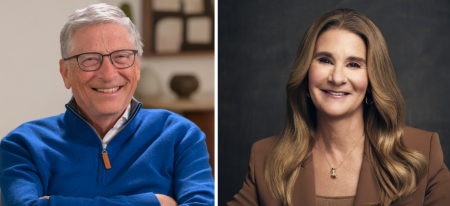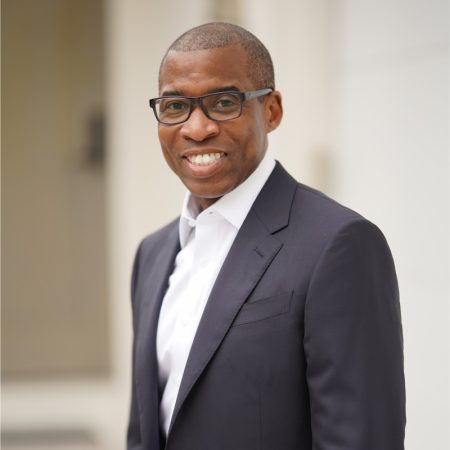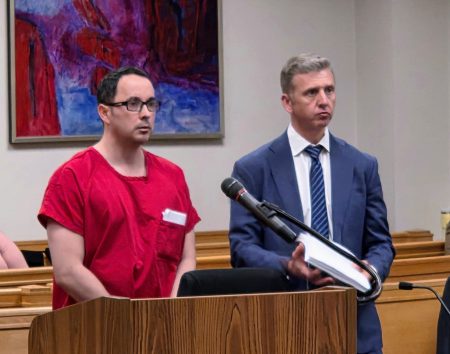Andrea Chartock Takes Helm of Washington’s Economic Development Office as Leadership Changes Sweep Seattle Tech Scene
In a significant appointment for Washington state’s economic landscape, Andrea Chartock has been named the head of Washington’s Office of Economic Development and Competitiveness, bringing over two decades of international development experience to the role. Her extensive background with DAI, where she implemented USAID initiatives across countries including Liberia, Moldova, and most recently Ukraine, positions her well for fostering economic growth within the state. Commerce Director Joe Nguyễn expressed confidence in Chartock’s appointment, noting her “experience and dedication needed to elevate our existing business community and foster growth in innovative ways.” The appointment comes at a challenging time as the department recently scaled back a key economic development program due to budget constraints, though it still manages an impressive portfolio of more than $8 billion across 485 programs. Chartock’s international perspective may bring fresh approaches to Washington’s economic development strategies as the state navigates post-pandemic recovery and positions itself competitively in the global marketplace.
Meanwhile, the tech leadership landscape in Seattle continues to evolve with several high-profile moves. Julie Brill, Microsoft’s former chief privacy officer who departed in July after more than eight years, has joined enterprise software company Ethyca’s board of directors. Her extensive experience in global privacy, safety, and regulatory affairs makes her a valuable addition as Ethyca works to “put privacy, security, and policy at the heart of enterprise data infrastructure.” In a related development at Microsoft, CEO Satya Nadella has expanded Rolf Harms’ role, naming the corporate vice president as an advisor on AI economics to work with the company’s leadership team. Having been with Microsoft for nearly two decades and authored a foundational whitepaper on cloud computing economics in 2010, Harms is well-positioned to help Microsoft “rapidly rethink the new economics of AI,” which Nadella described as “building a new AI factory and family of Copilots and agents that drive diffusion and usage across the full stack.” These changes reflect the tech giant’s continued focus on AI as a transformative technology requiring specialized economic expertise.
The Seattle sports scene is also experiencing leadership changes, with Sean Coury joining Seattle Reign FC and Seattle Sounders FC as chief financial officer. Coury brings valuable experience from the Bezos Academy, where he served as CFO of the educational nonprofit launched by Amazon founder Jeff Bezos. His background also includes financial roles at the Bill & Melinda Gates Foundation and helping Bellevue-based Apptio navigate its public offering, suggesting he brings both nonprofit and commercial financial expertise to the soccer clubs. This appointment follows the recent hiring of Ro Vega as chief marketing officer for both teams, indicating a strengthening of the clubs’ executive leadership. In contrast, Amplitude is losing its chief product officer Francois Ajenstat, who previously spent 13 years at Seattle’s Tableau Software before a brief stint at Salesforce that ended in 2023. Ajenstat’s career trajectory, which included a decade at Microsoft in various technical and environmental sustainability roles, highlights the fluid nature of technology leadership in the region.
The University of Washington’s prestigious Institute for Protein Design (IPD) is undergoing multiple leadership changes that promise to shape the future of this innovative research center. Professor Neil King has stepped into the role of deputy director as Lance Stewart, former interim executive director, retires after helping build what Stewart described as “a whole new industry based on computationally designed proteins.” Nobel Laureate David Baker will remain in his role as director, maintaining continuity at the top of the organization. The IPD has also welcomed three additional leaders: Jenny Cronin as director of translational research (joining from AI2 Incubator and maintaining ties as a venture partner with Pack Ventures); Roseanne Hampton Reich as assistant director of administration (bringing experience from lululemon, UW’s Division of Nephrology, and Seattle Children’s); and Justin English as director of strategic development (formerly an assistant professor at the University of Utah with a PhD in pharmacology). This leadership refresh positions the IPD to continue its groundbreaking work in protein design with a blend of academic expertise and administrative talent.
Beyond Seattle, regional leadership changes include Alex Pettit’s return to Oregon as the state’s digital transformation projects director after nearly six years as Colorado’s chief technology officer. His previous technology leadership roles in Oregon, Texas, and Oklahoma give him what he calls “hard-won experience” to apply to “familiar soil,” focusing on modernizing legacy platforms and evolving enterprise architecture. In Portland, Skip Technology, a startup building long-duration grid-scale batteries, has appointed Brian Bishop as CEO, replacing co-founder Brennan Gantner. Bishop brings over three decades of engineering, manufacturing, and management experience in electronics-focused businesses. Back in Seattle, e-commerce logistics startup Pipe17 has promoted Kelly Goetsch from chief operating officer to president following the company’s $17.5 million Series A funding round earlier this year. Goetsch has also been instrumental in creating the first open standard to unify commerce system communications, released this week through the nonprofit Commerce Operations Foundation. In contrast to these positive transitions, SIFF executive director Tom Mara has departed the nonprofit following the decision not to renew his contract. Having joined SIFF in 2022 after running Seattle radio station KEXP, Mara oversaw the organization’s celebrated purchase of the historic Cinerama theater, which has subsequently faced financial challenges despite its cultural significance to the Seattle community.
The wave of leadership changes across Washington state’s public and private sectors reflects an economy in transition, with particular emphasis on technology, innovation, and economic development. From Andrea Chartock’s international perspective being applied to statewide economic growth to Microsoft’s strategic positioning in AI economics under Rolf Harms’ guidance, these appointments suggest organizations are preparing for new challenges in an increasingly complex business landscape. The University of Washington’s Institute for Protein Design continues to position itself at the forefront of biotechnology with its leadership refresh, while regional sports teams and startups alike are strengthening their executive teams. As these leaders settle into their new roles, their collective impact will likely shape the Pacific Northwest’s economic trajectory for years to come, particularly in key sectors like artificial intelligence, biotechnology, e-commerce, and public administration. The departure of SIFF’s Tom Mara serves as a reminder of the ongoing challenges facing cultural institutions as they navigate post-pandemic financial realities, even as government and technology organizations position themselves for future growth.















